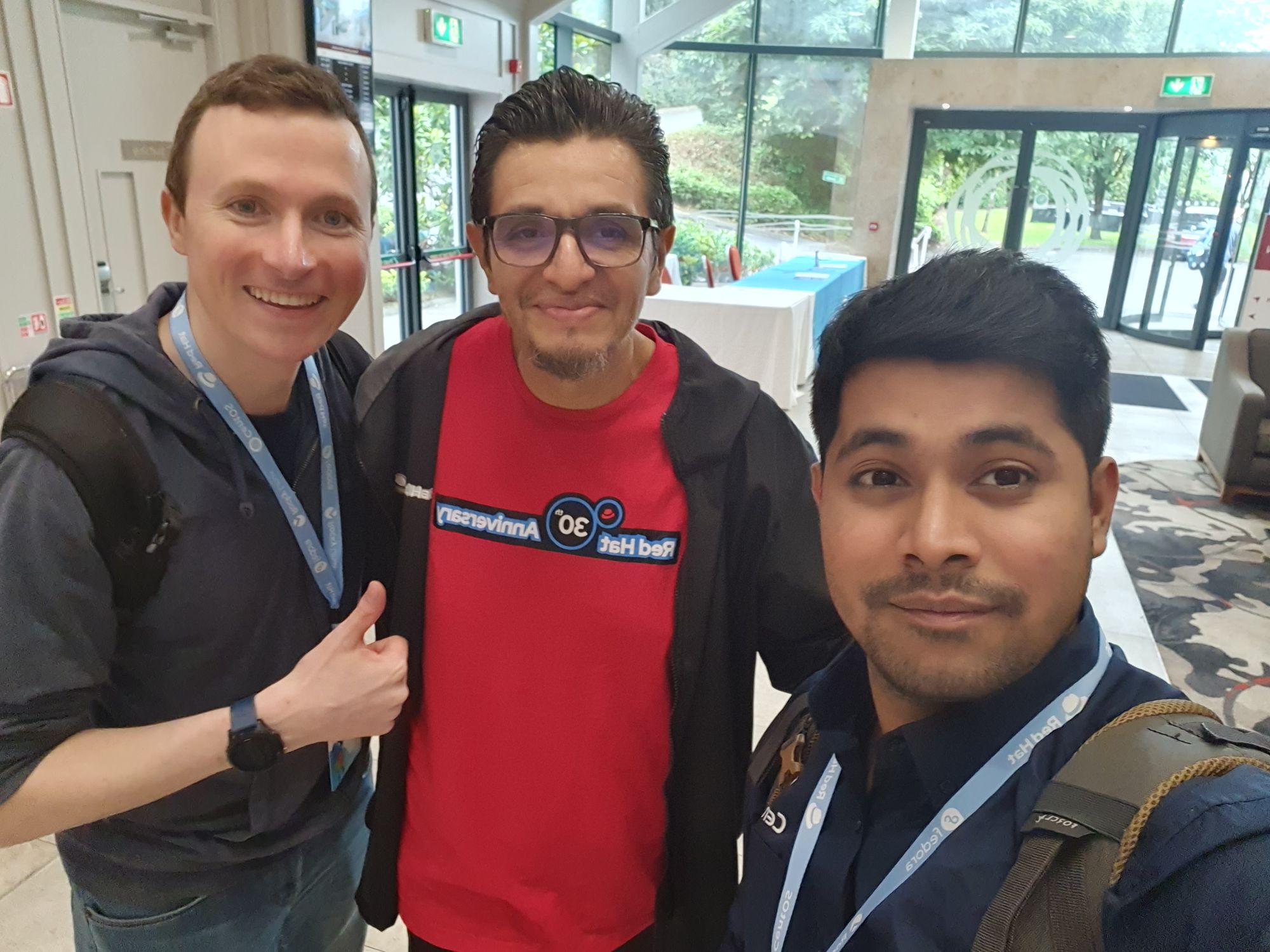Day Two Part III - Flock To Fedora 2023
Once the loud-sounding fire alarm puts a halt to the engrossing discussions at the event, it was time for yet another social break - although a bit earlier than whenever it was scheduled. After some conversations and selfies, it was time for a panel discussion involving community representatives

While many crucial points were put forth by the attendees of the talk regarding the adoption of Discourse as a platform for performing most communications made sense, the discussions and debates going on during the time of the presentation felt quite chaotic to me. When it came to keeping metrics regarding the participation of users from workgroups and subcommunities, I remarked that we could make use of the most recent developments done by the members of the Red Hat Community Platform Engineering team on the "Discourse2FedoraMessaging" project to achieve that purpose. Soon, this session was abruptly brought to a halt by the loud-sounding fire alarm that went off inexplicably.
As the attendees started making exits carefully from their respective rooms and halls, it almost became an instantaneous meme that the chaotic discussions during the talk on Fedora Discussions are probably what caused the fire alarm to start ringing. While that was far from the truth, it was certainly something to reminisce about and make fun of. It was such a shame for the talk to be interrupted as there were some really interesting points put forth by Greg Sutcliffe, who worked as the Community Manager for Ansible at the time of writing this article and had success in implementing Discourse service as a collaboration platform for the previous community he worked for, named Foreman.

I was seated beside Nick Bebout and Tim Flink, who worked with the Quality Engineering team in Red Hat at the time of writing this article - both of whom were passionate about the topic and expressed their opinions regarding the state of affairs of using this tool as a primary means of communication for the community. With the fire alarm going off and most presentations being prematurely interrupted, it was again time for another social break even when the hands of the clock did not yet quite point towards the time mentioned in the schedule. I met up at around 0300 pm Ireland Standard Time with Gerard Ryan and Alex Callejas in the hallway corridor area before we headed back.

The next discussion we went to was about "Upstream Collaboration & Cooperation In The Enterprise Linux Ecosystem" and was organized in the Tivoli hall. This panel discussion was participated by Matthew Miller who was representing Fedora Project, Davide Cavalca who was representing CentOS Project, Brian Exelbierd who was representing Red Hat Enterprise Linux, Neil Hanlon who was representing Rocky Linux and Jonathan Wright who was representing Alma Linux. The hall was packed with attendees as folks were really eager to hear the opinions of the respective representatives at that time when the relationship between Red Hat as well as the downstream communities was seen as unstable.

Thankfully, the discussion that began at around 0330 pm Ireland Standard Time went amicably - which we did not expect noting the state of affairs about the communities then. Maybe this is the power of free and open-source software communities where no matter how hard people can disagree on opinions, they still stay on friendlier terms personally and continue working towards a common goal of enhancing communities and software together. Neil Hanlon and Jonathan Wright remarked that Fedora Project is one of the best places one could start contributing to influence the upstream as much as possible. The onboarding experience for all the representing communities was also discussed.